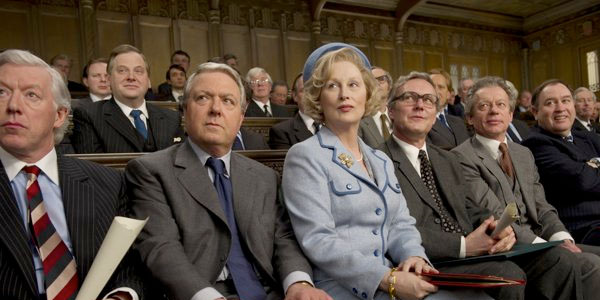The Future of British Cinema #1: Troubles Ahead

Alistair is a 25 year old writer based in Cambridge.…
Under the last government, the UK film council (which supported the funding, production and distribution of British films) was scrapped, as prime minister David Cameron cited that the initiative “wasn’t supporting films people British people want to see, like Harry Potter“. Subsequently, we have been told this has made it far harder for British filmmakers to get their movies made. As David Cameron’s Conservative government have recently been re-elected into parliament (this time as the sole governing party; last time they were part of a coalition), it is time to examine what effect this will have on British filmmakers, both in terms of how they will be able to get their films made now there is a tighter grip on funding, as well as how it will effect the kinds of films they make.
Here, I’m going to explore how easy it is for British filmmakers to get their movies funded. In the next article, I will explore whether filmmakers will resort to making “films that British people want to see, like Harry Potter“, or films that are far more politicised in content?
A Rough Guide to how most UK Movies are funded
Between 2000 and 2011, when the UK Film Council was finally shut down, it helped generate up to £160 million of funding to approximately 900 films, all of which had differing levels of commercial success. A major reason they were shut down is likely down to their response to being told in 2009 that only one government controlled film body needed to survive. They responded with the badly judged move of using taxpayers money to pay hotshot PR representatives to argue for why they needed to survive, ignoring the key public relations trick of “not wasting taxpayers’ money”. Considering their demise was under a Conservative government, it was quite ironic that the last film they funded that received a cinema release was the lightweight Margaret Thatcher biopic The Iron Lady – a film whose commercial and minor critical success acted as a too-late argument to why the council was necessary for funding independent films.

Their film funding process has largely been taken over by the BFI, who equally survive on annual government grants (although with significantly lower funds than the council), as well as additional revenue from owning some of the best cinemas in London, and annual £25 million grants from the national lottery. However, citing only the BFI paints only a small picture of the film industry in the United Kingdom, as in many places, business is booming. Film4 are the most notable production company, as since their 1982 inception, they have funded multiple Oscar winners (including Slumdog Millionaire and 12 Years a Slave), major box office successes (both Inbetweeners movies, Four Weddings and a Funeral) and helped nurture some of the world’s most forward-thinking filmmakers, both in Britain and internationally. The UK Film Council was repeatedly criticised during its decade in prominence for often “acting like a studio” and giving funds to movies that were more likely to make money – the public outcry over them funding a film called Sex Lives of the Potato Men is quite laughable today (more so than the film itself). Film4 are the most notable studio in comparison because they manage to balance commercial and creative successes effortlessly.
Film4 are a studio that have enough commercial successes to ensure that they can still help contribute to risky productions, such as Under the Skin or The Duke of Burgundy. A quick glance at their eclectic filmography shows that, although they are a film production company operated by a publicly funded TV channel, they have enough faith in their audiences to expect a certain element of commercial interest in unique cinema. On a side note, I just want to ask why they don’t have that same element of faith in audiences on their TV channel; they fund a plethora of interesting films, yet Film4 TV appears to show nothing but wall-to-wall generic action movies, mostly starring Mark Wahlberg.

Other film production companies are doing well for themselves too; Working Title help add funds to movies that a more of a safe bet at the box office, such as The Theory of Everything and Les Miserables. On the other end of the scale, Warp Films funds short films and grittier features (but usually needs the help of Film4 to do so), whilst Vertigo Movies mainly produce and distribute the worst of British cinema, with the consistently awful output of director Nick Love, as well as cheap-and-profitable movies like Streetdance 3D and Britain’s got Talent spin-off Pudsey the Dog: The Movie. Looking at the eclectic state of film production companies in the UK, you can see movies of all genres (and varying qualities) are being made, despite criticisms of a shortage in film funding.
The troubles ahead for studios and filmmakers
Nonetheless, funding for films in the UK is still likely to decrease in the coming years. With the BBC under extensive criticism from both the government and the media, it is very likely that BBC Films (who most recently have funded Far from the Madding Crowd and Mr. Holmes) will have to severely downsize and halt their distribution of funds to small scale films. Recently appointed Culture Secretary John Wittingdale has announced a fundamental review of the BBC and whether it should “continue to be all things to all people”, a move that has already seen youth-oriented channel BBC Three axed and criticisms of shows commissioned in order to be commercial successes that oppose the public service broadcasting remit, like The Voice. This could go either of two ways: either they stop funding arthouse-inclined content to concentrate on commercial safe-bets (like StreetDance 3D– yes, taxpayers helped Vertigo Films get that movie made), or stop “being all things to all people” and concentrate on producing less mainstream content.
At the minute, either is likely, but more plausible is the possibility to stop producing mainstream content; with the government ceasing to fund many services to young people (here represented by the demise of BBC Three), they aren’t going to let a publicly funded body produce a teen movie like StreetDance 3D without opposition. Sadly, the growing possibility is that BBC Films may be scrapped altogether due to the other publicly funded film studios operating in the UK. This is a major blow for independent filmmakers with less channels to get their movie made, such as Carol Morley, whose movie The Falling was funded by the beeb and released to near unanimous critical acclaim earlier this year. However, we should consider the biggest victims here. After all, this is a fatal blow to directors hoping to make movies about people dancing on streets, in 3D.

In fact, the only filmmakers who will struggle to get funding are first-time filmmakers. Whereas directors like Danny Boyle or Steve McQueen have long running partnerships with production companies that ensure their movies will get made, for first time filmmakers, it is less of a sure bet. Production companies like the BBC and Film4 are willing to give money to first timers, but only if they have a sizeable portfolio of work behind them; Catch Me Daddy director Daniel Wolfe, whose film was made by Film4, has made a name for himself by directing music videos, whilst Testament of Youth director James Kent, whose film was funded by the BBC, has been a prolific TV director. As there are limited funding initiatives for short films, that will likely go unseen by audiences at large, budding directors are likely to be discouraged from becoming filmmakers, due to the expenses at funding short films and the likelihood that those films won’t find an audience to fund any future endeavours.
Conclusion
There are plenty of opportunities to work in the film industry in the UK; Framestore, the VFX company behind Gravity, are based in London, whilst the capital is also home to Pinewood and Shepparton studios. Both are responsible for bringing a plethora of jobs to the UK film industry, due to being home to the large scale productions of Spectre, The Force Awakens and Age of Ultron – and that’s just this year! There are plenty of opportunities to get involved with productions based in the UK, but for creative types, the marketplace is more competitive than ever, which leaves the ones without a loaded filmography at risk of not finding their place in the creative sector of the industry.
In the next article I will explore what effect the decreasing funding situation will have on the types of movies being made here in the UK. In the meantime, I will end by asking: do you think that there are more or less opportunities for filmmakers in the UK today?
(top image: Far From The Madding Crowd (2015) – source: Fox Searchlight Pictures)
Does content like this matter to you?
Become a Member and support film journalism. Unlock access to all of Film Inquiry`s great articles. Join a community of like-minded readers who are passionate about cinema - get access to our private members Network, give back to independent filmmakers, and more.
Alistair is a 25 year old writer based in Cambridge. He has been writing about film since the start of 2014, and in addition to Film Inquiry, regularly contributes to Gay Essential and The Digital Fix, with additional bylines in Film Stories, the BFI and Vague Visages. Because of his work for Film Inquiry, he is a recognised member of GALECA, the Gay & Lesbian Entertainment Critics' Association.













